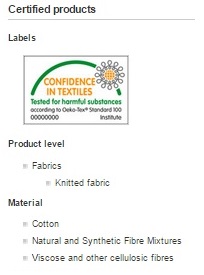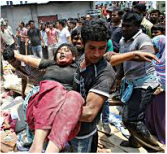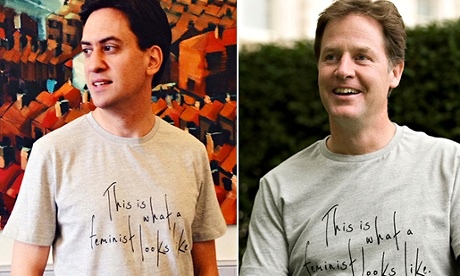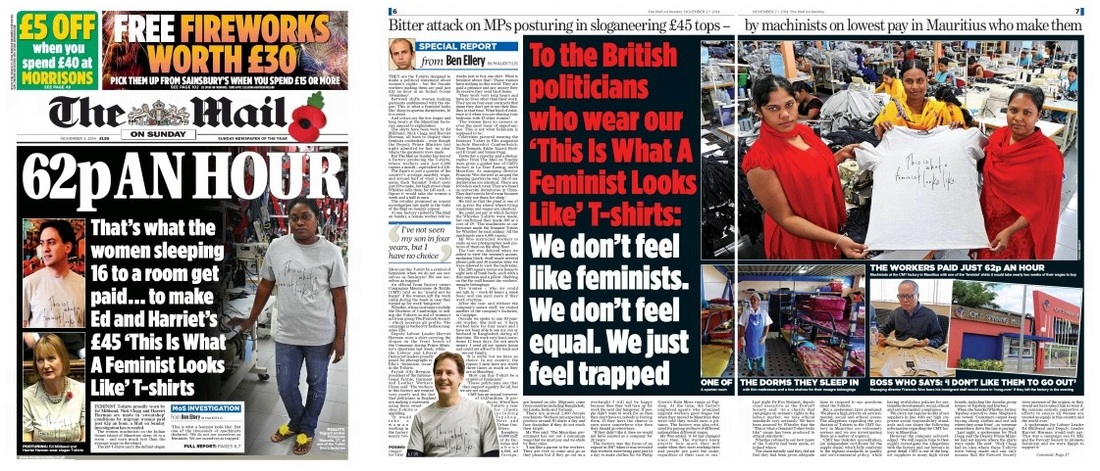Mail makes hay with flawed feminist stuntThanks to ELLE and Whistles, women and men who have never heard of Fawcett will learn about the issues we campaign on These are the words of Ava Lee, the Fawcett Society's policy and campaigns officer, in a blog written two weeks ago. How right she was.
The post, headlined "The story of a t-shirt", set out to explain why the society was collaborating with a magazine and fashion chain to produce merchandise that it knew many of its members and supporters would not be able to afford. The qualms are apparent through the piece: The partnership took us out of our comfort zone. Fashion and feminism aren’t the most straight forward of bed fellows, and here at Fawcett we had long conversations about the risks of working with a women’s magazine, with the narrow beauty ideals and aspirational lifestyle that they present. The society appears to have been flattered by the approach from ELLE and beguiled by the prospect of all the profits from the pricey t-shirts, bags, and mobile phone covers. But most of all, it seems it wanted exposure - a slice of the action. Lee's post notes the Lagerfeld fashion show and Emma Watson's UN speech and concludes:
The collaboration gives Fawcett the opportunity... to get in on some of the limelight, and to keep the issues that really matter to us on the agenda more broadly. The t-shirts went on sale last week. Ed Miiband, Nick Clegg, Harriet Harman obligingly put them on. David Cameron refused and was roundly denounced for doing so - not least by Susan Calman on the News Quiz.
While all that was going on, Ben Ellery of the Mail on Sunday was being shown round a factory in Mauritius, looking at the dormitory shared by 16 sewing machinists and talking to the women who made the t-shirts, women who would have to work for 72 hours to earn enough money to buy one. The results of his efforts appeared yesterday morning and dominated the news all day. The Mail newspapers are not renowned for their social conscience with regard to the working conditions of women who live on Indian Ocean islands. They are known for their hatred of feminism and their contempt for Miliband and Harman. They must have been beside themselves with glee when they nailed this story.
The CMT factory where these t-shirts were made is not a hell-hole like some in Bangladesh or Pakistan. The women are poorly paid by our standards, but they do receive more than the government-set minimum wage. The factory looks modern and the fact that the boss was willing to show the reporter around and take photographs suggests that he was proud of his workshop. It is well-lit and spacious. Not exactly a sweatshop then. Western markets are vital to the empowerment of women working in the textile industry in the developing world and so shunning their merchandise does not help them. But it was still a mistake for this order - for t-shirts that were to be used in a high-profile campaign that might have involved the Prime Minister - to have been placed there without thorough checks that would bear scrutiny. The Mail's coverage was certainly justified. It should, however, have given the Fawcett Society more time to respond, since once the allegations were in the open it produced a detailed statement that it would surely have made earlier, given the opportunity. Fawcett said that it had wanted a UK manufacturer and that it had been concerned when the merchandise turned up marked "Made in Mauritius". Whistles had responded that CMT was a world-class company with Oeko-tex accreditation. 
Oh dear. Yes it is accredited, but because its fabrics do not contain harmful substances, not for its working conditions. A quick internet search would have shown the Fawcett team that the phrases in the Whistles email bore an uncanny resemblance to the language of the company's website.
ELLE and Whistles are both commercial enterprises. Advancing the feminist cause was no more their top priority than highlighting the plight of the Mauritus women was the Mail on Sunday's. Like Fawcett, ELLE and Whistles wanted publicity. Whistles might not profit from the t-shirts, but customers willing to part with £45 for a slogan might be willing to spend more on other clothes. Ed Miliband wearing the t-shirt would probably not do much for ELLE's sales, but Benedict Cumberbatch's endorsement surely would. 
The shame in all this is that it is the Fawcett Society, rather than its collaborators, that will come out worst.
The society's website has its own "This is what a feminist looks like" t-shirts for sale for £15, including postage. It's a decent enough t-shirt slogan, and it had attracted a fair degree of celebrity support without the commercial partners. Fawcett should have followed the instincts shown in Lee's blogpost. ELLE and Whistles were the wrong partners, and a £45 t-shirt that its supporters couldn't afford was the wrong product. It was naive and it has suffered disproportionate opprobrium as a result. But there may yet be a happy ending. People don't like to see charities bullied, and even if the publicity hasn't been quite what Fawcett hoped, it may find increased levels of public support. And maybe the Mail on Sunday's "investigation" will get people thinking about inequality here and in the Third World. You never know. |
|

Eighteen months ago more than a thousand clothing workers - mostly women - were killed when the Rana Plaza factory in Bangladesh collapsed.
Their employers had been told that the building was unsafe, but continued production nonetheless. Six months earlier nearly 300 people died when a Pakistan clothing factory caught fire. The Rana Plaza disaster prompted a series of posts on the old SubScribe blog, including the suggestion that a universal symbol be introduced to indicate to shoppers that their clothes had been produced ethically. Achieving that is easier said than done. You can read the posts all in one place here. |
Please sign up for SubScribe updates
(no spam, no more than one every week or two)
|
|
|











